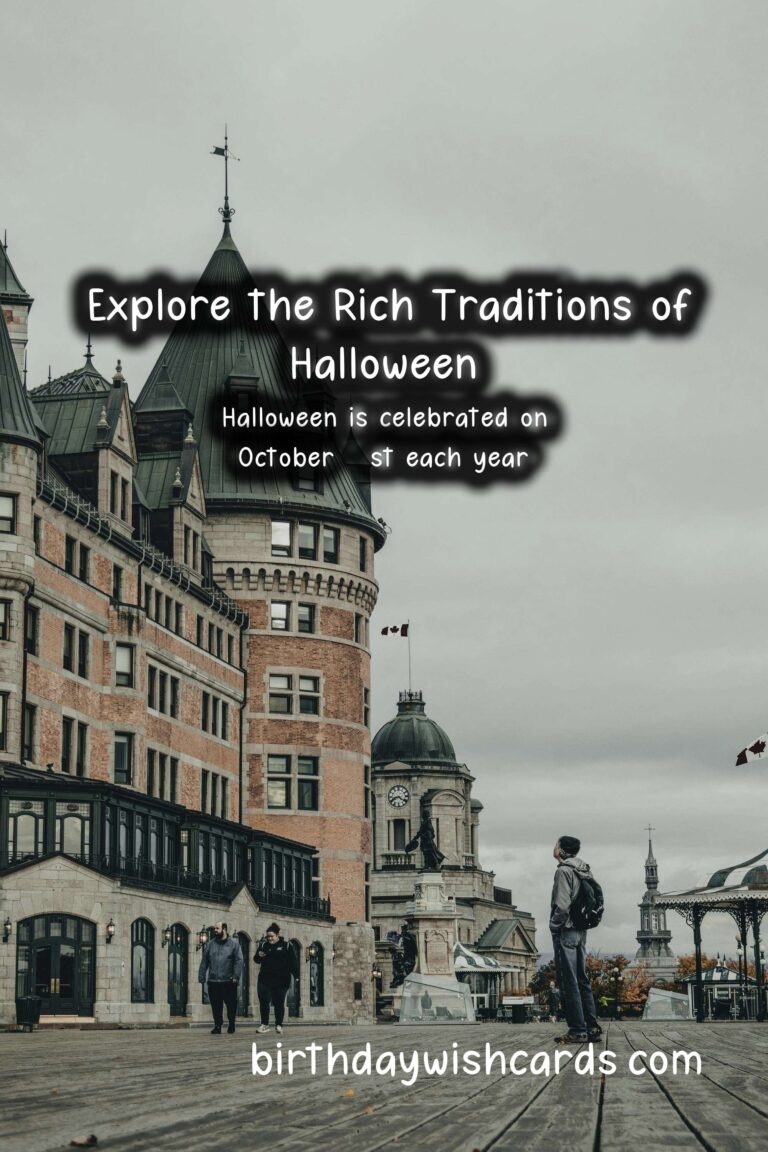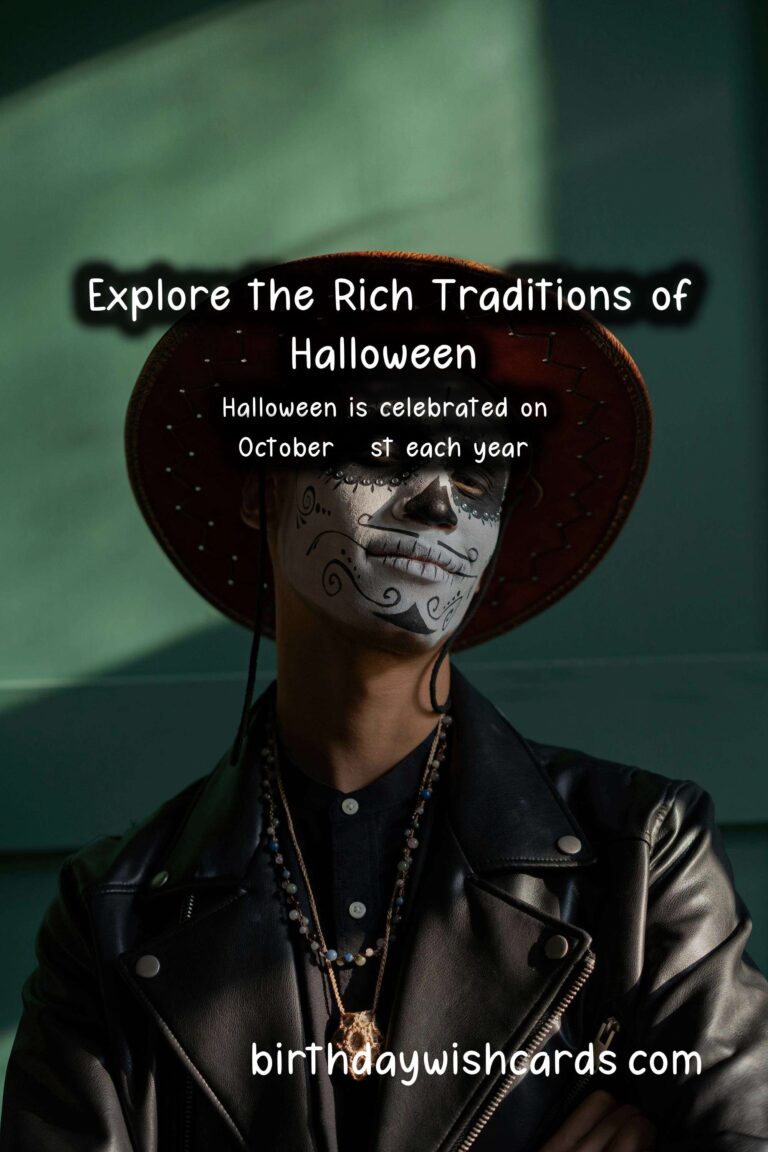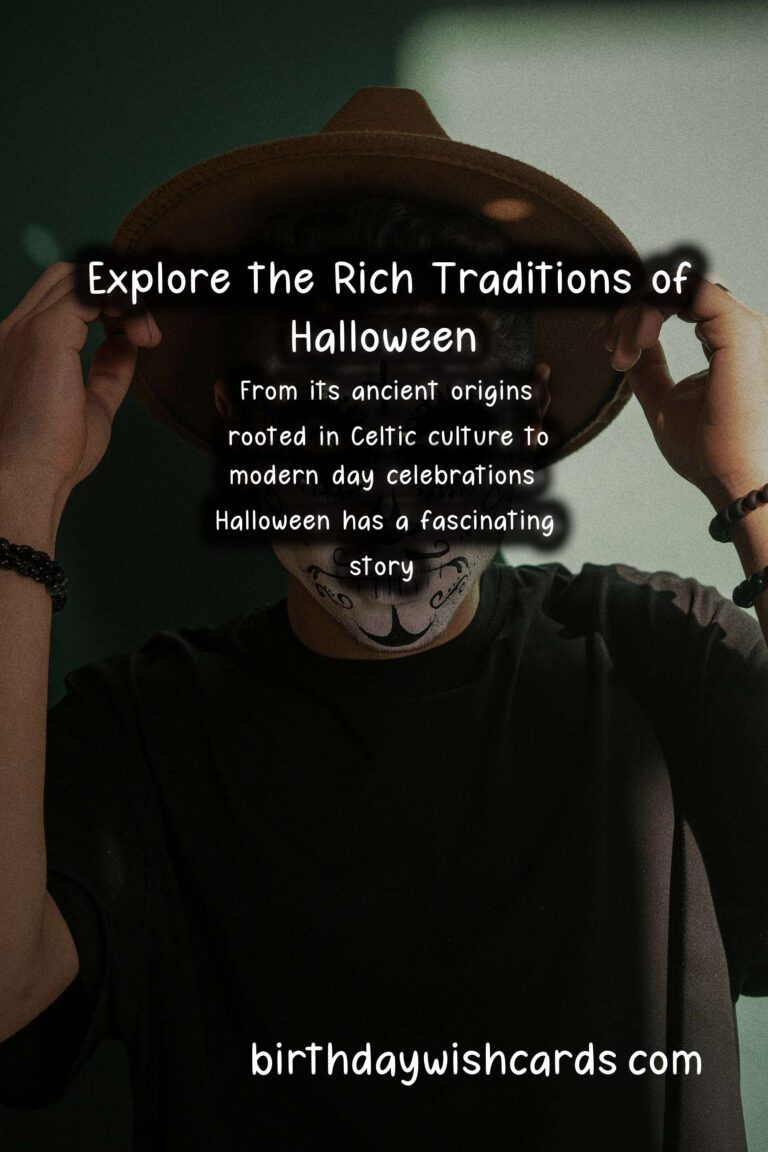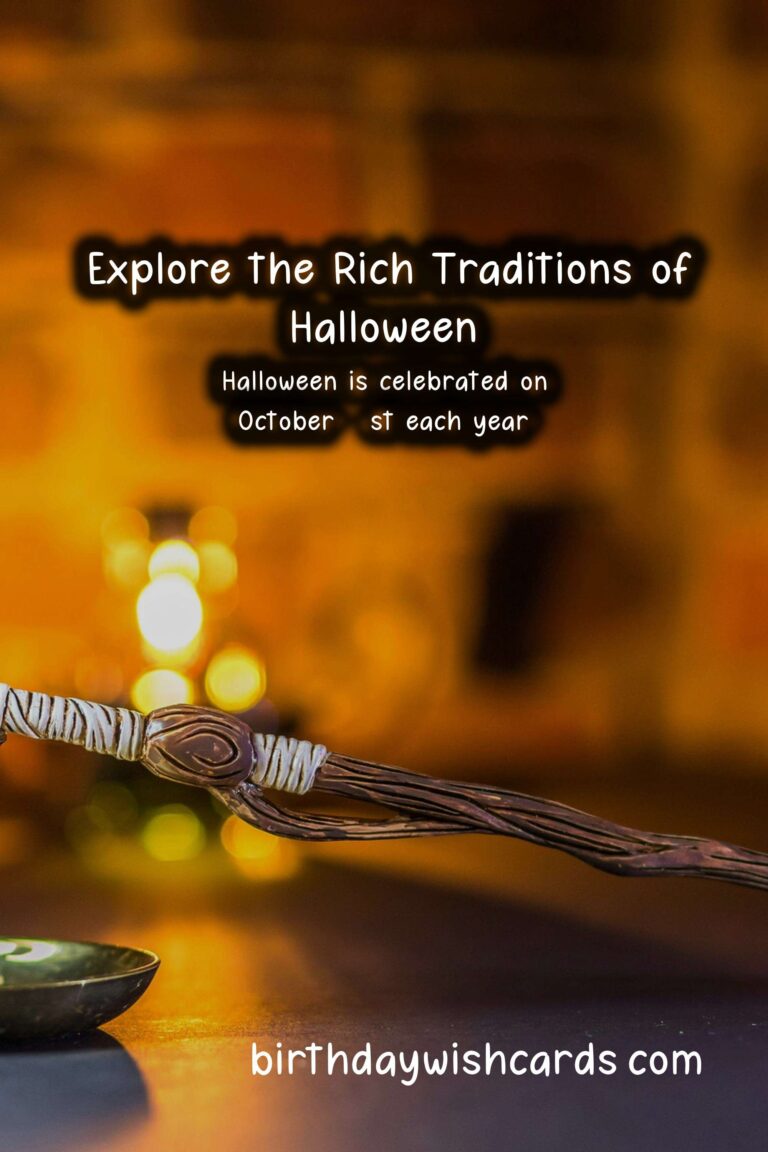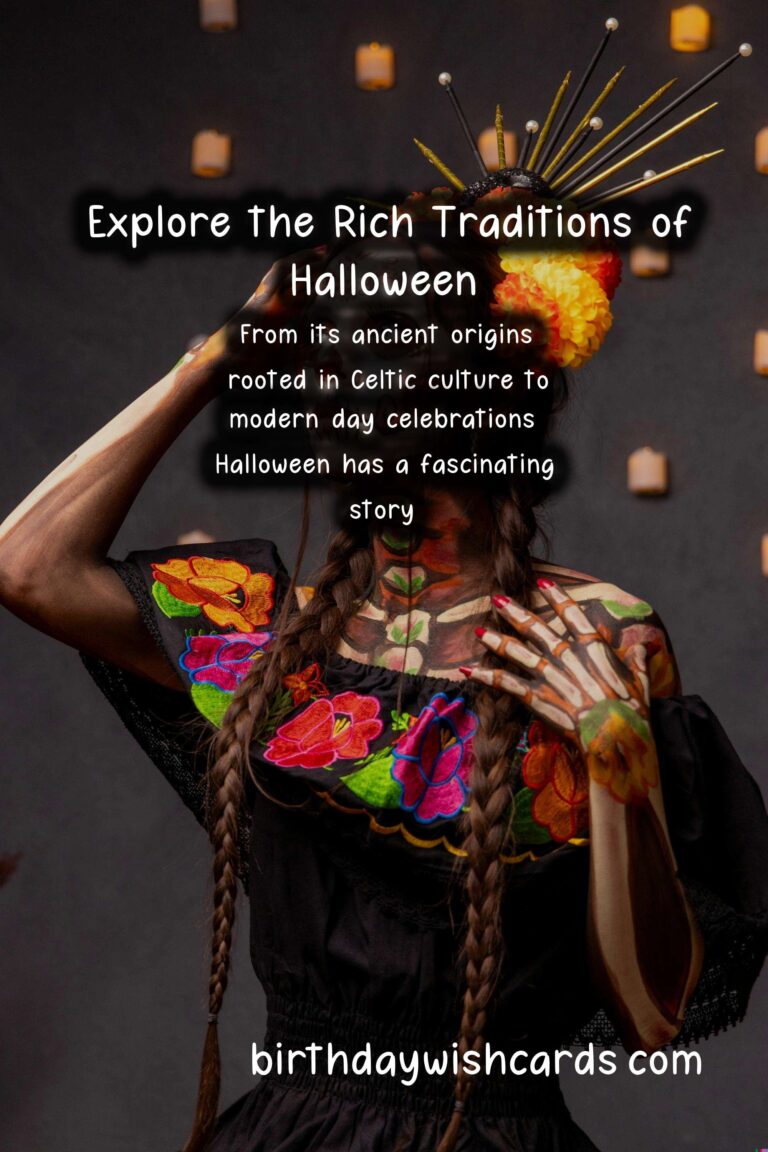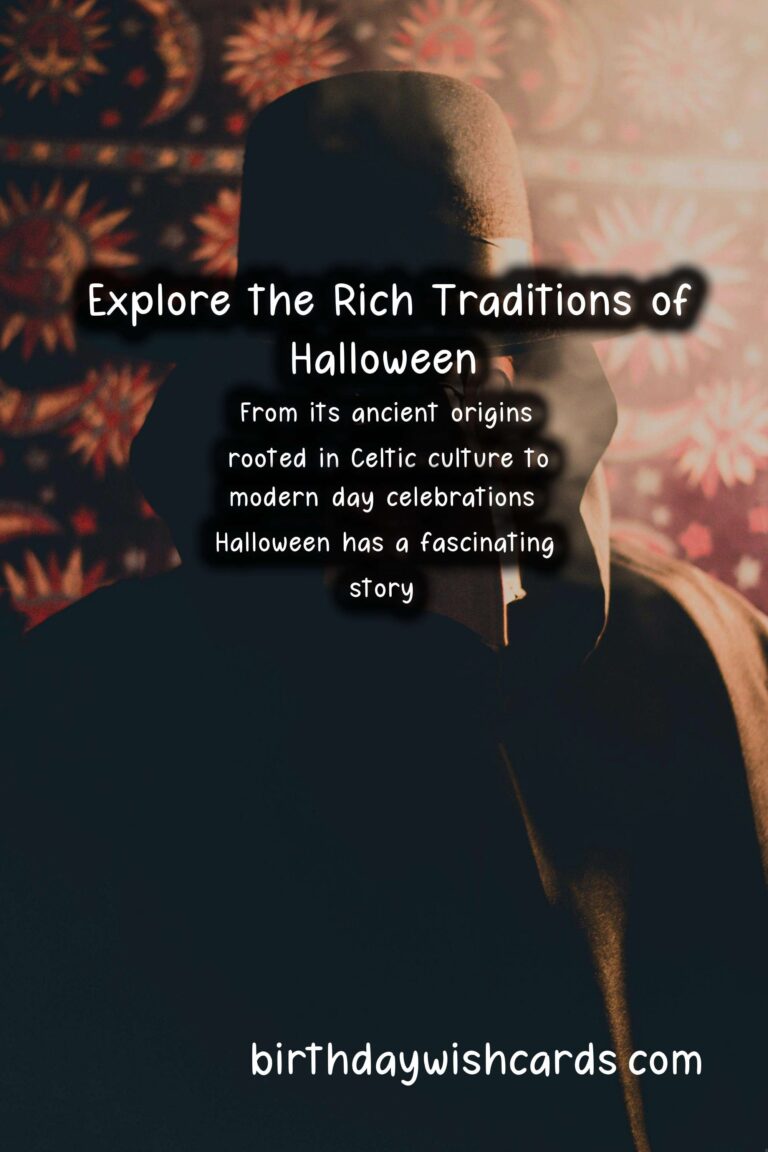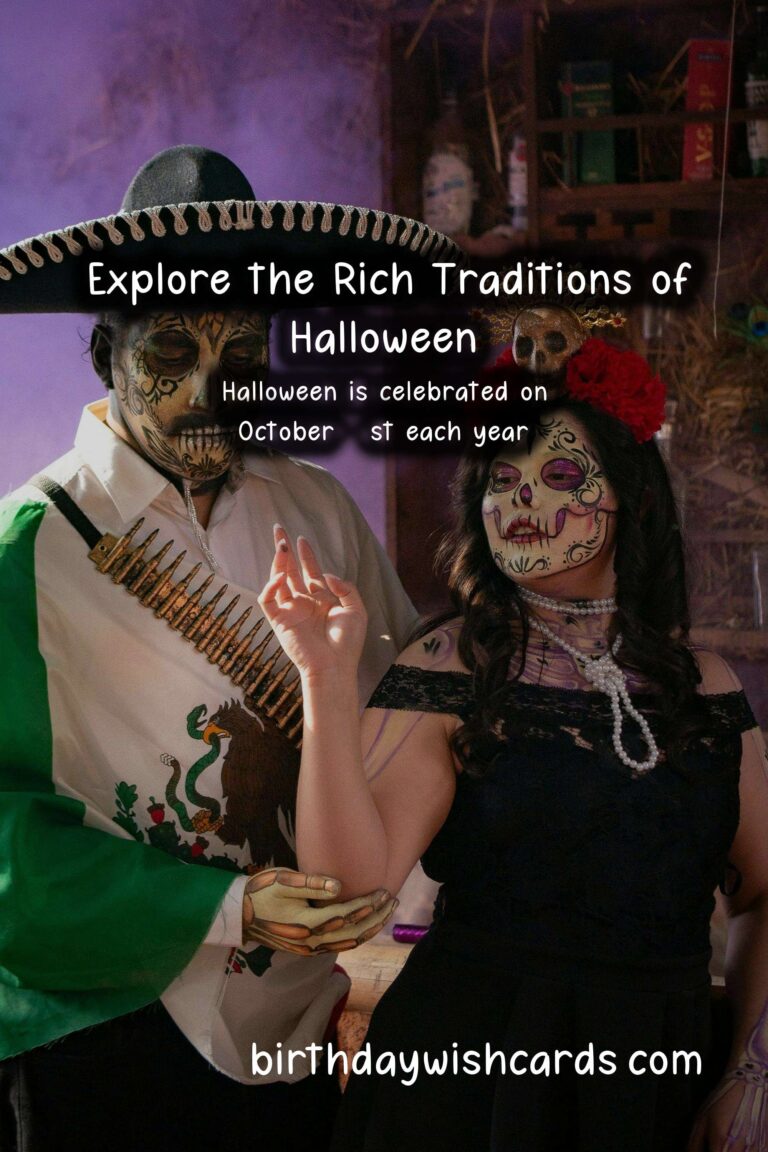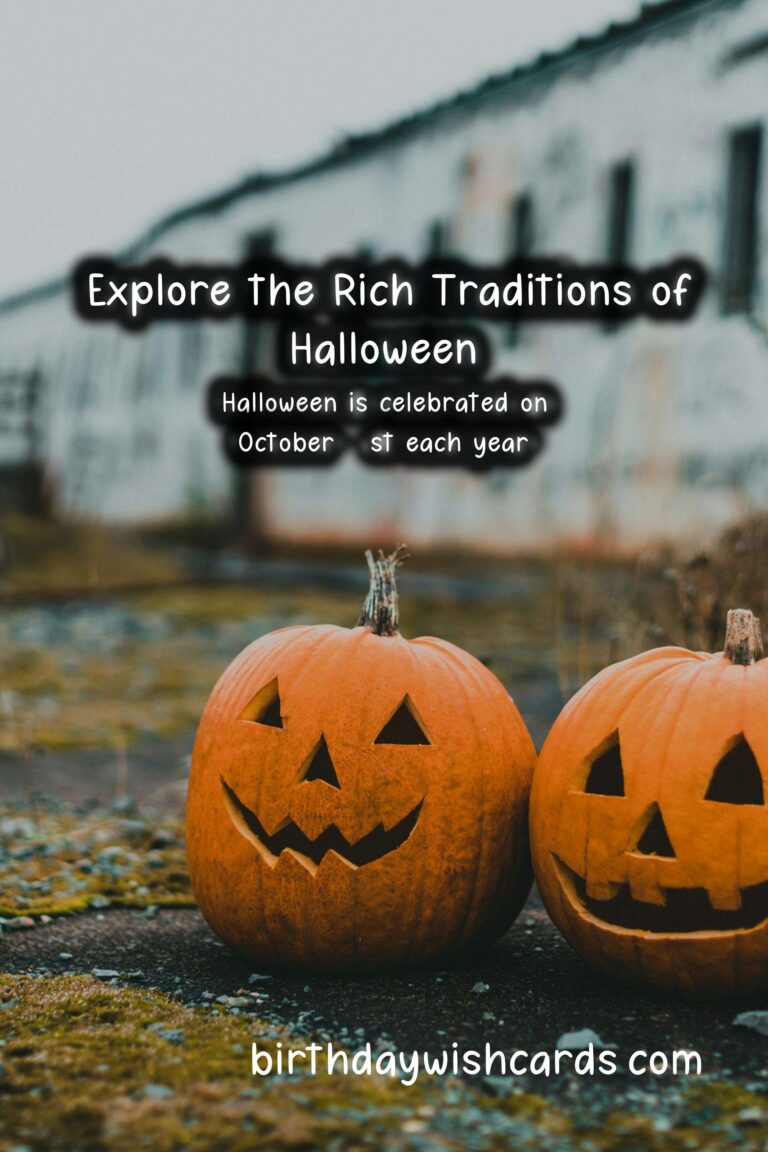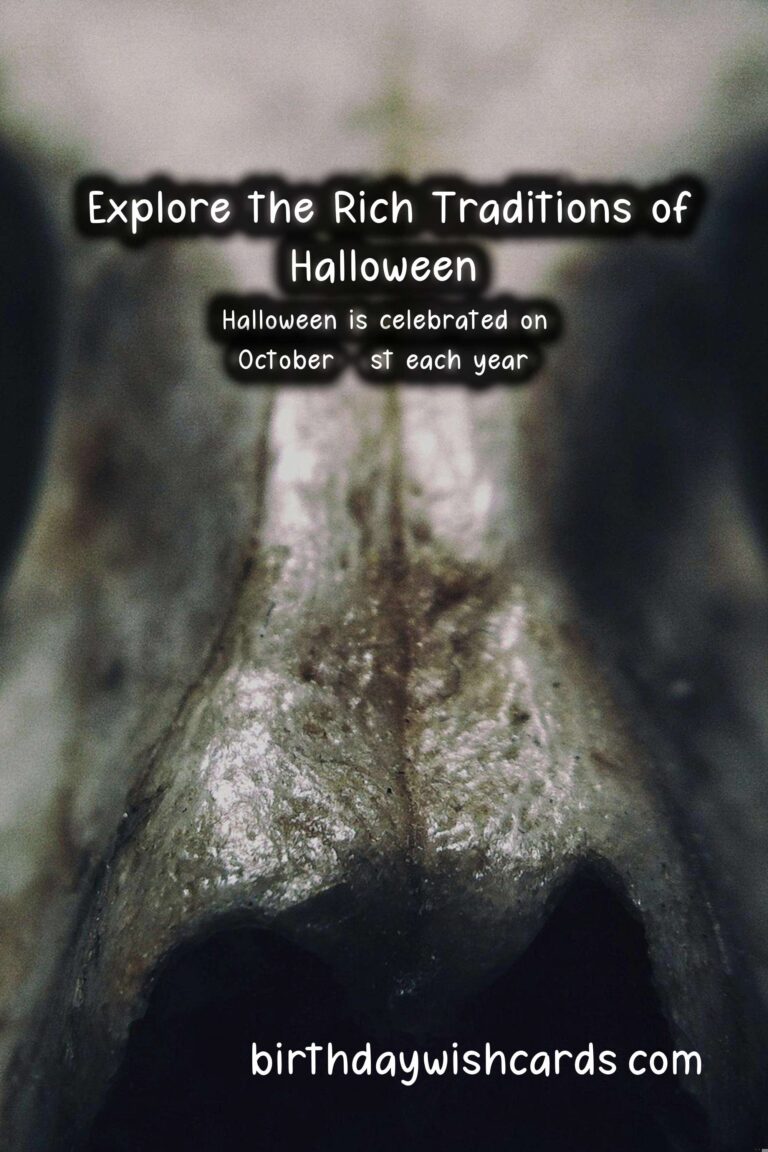
Halloween, celebrated on October 31st each year, is a festival steeped in history and traditions that have evolved over time. From its ancient origins rooted in Celtic culture to the modern-day celebrations we see today, Halloween has a fascinating story that intertwines culture, mythology, and community spirit. In this article, we will explore the various elements that contribute to the significance of Halloween, including its historical roots, evolution, and contemporary practices.
Origins of Halloween
The history of Halloween can be traced back more than 2,000 years to the ancient Celtic festival of Samhain. October 31st marked the end of the harvest season and the beginning of winter. The Celts believed that on this night, the boundary between the living and the dead was blurred, and the souls of the dead would return to Earth.
During Samhain, people would light bonfires and wear costumes to ward off roaming spirits. They believed that by disguising themselves, they could avoid being recognized by ghostly visitors. This festival was celebrated with great enthusiasm throughout the regions that now comprise Ireland, the United Kingdom, and northern France.
The Transition to Halloween
As Christianity spread throughout Europe, the Church sought to replace pagan traditions with Christian holidays. In the 8th century, Pope Gregory III designated November 1st as All Saints’ Day, a day to honor all saints and martyrs. The evening before became known as All Hallows’ Eve, which eventually morphed into Halloween.
The combination of ancient and Christian rituals gave rise to a new set of customs, including the practice of visiting graveyards to remember deceased loved ones and the lighting of candles to guide their spirits home.
Immigrant Influence on Halloween
With the arrival of Irish immigrants in the 19th century, Halloween began to take on a more recognizable form in America. The Irish brought with them the tradition of carving turnips into lanterns, which evolved into the modern-day practice of carving pumpkins. This was primarily due to the abundance of pumpkins in North America.
In addition to pumpkin carving, the Irish also contributed to the practice of “trick-or-treating.” Children would go door-to-door, offering prayers for the dead in exchange for food, a practice known as “souling.” This custom was adopted and adapted over time, leading to the Halloween we know today.
Modern Day Celebrations
Today, Halloween is celebrated in various ways around the world. In the United States, the holiday has become a major commercial event, with people spending millions on costumes, decorations, and candy. According to the National Retail Federation, Halloween spending in recent years has surged to over $9 billion annually.
Costumes are a huge part of Halloween festivities, with people of all ages donning creative and often humorous outfits. Halloween parties, haunted houses, and pumpkin festivals have also become popular entertainment options during this time of year.
Cultural Significance of Halloween
Beyond the fun and festivities, Halloween serves as a reminder of the cycle of life and death. Many cultures around the world have similar festivals that honor the deceased, highlighting the universal need to remember those who have passed away. For example, the Mexican Day of the Dead (Día de los Muertos) shares common themes with Halloween, focusing on honoring and celebrating the lives of loved ones who have died.
Halloween encourages creativity and community engagement. Neighborhoods come alive with decorations, and families bond over costume planning and pumpkin carving. Additionally, Halloween activities foster a sense of belonging, as people come together to enjoy the festivities.
Conclusion
In conclusion, Halloween is a rich tapestry woven with history, culture, and celebration. Its origins in ancient Celtic traditions and its evolution through immigration and cultural exchange illuminate its significance in contemporary society. As we carve pumpkins, dress in costumes, and enjoy Halloween festivities, we connect with our past while creating new traditions for future generations.
This cherished holiday not only allows us to celebrate creativity and community but also serves as a poignant reminder of the transient nature of life. So, as you celebrate this Halloween, remember to honor those who have come before us while embracing the joyous spirit of the season!
Halloween is celebrated on October 31st each year. From its ancient origins rooted in Celtic culture to modern-day celebrations, Halloween has a fascinating story. 
